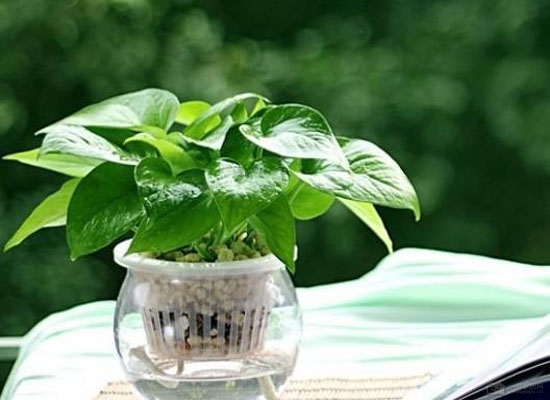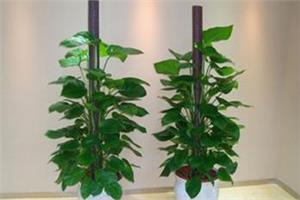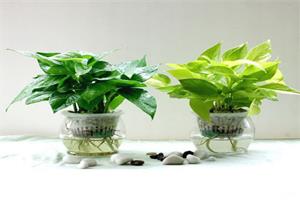To understand the secret of removing formaldehyde from green pineapple by looking at the experimental results.
Green pineapple is one of several kinds of plants that absorb formaldehyde, so many families will put several pots of green pineapple after decoration to purify the air and reduce the harm of harmful gases to the human body. To this end, an organization has done a test to see how effective the green pineapple is in removing formaldehyde.

In a newly renovated house, the relevant testing institutions first tested the air pollution of the house, and then carried out a closure test: close all the doors and windows of the home, put 10 pots of green apple into the most polluted master bedroom, and water it once every three or four days; after 2 kilograms of activated carbon was split, it was scattered on the cabinets, drawers and floor of the second bedroom; the air purifier was placed in the living room, running during the day and closed at night.
More than a month later, the experimenter tested the three rooms again, and the results showed that the content of benzene in the three rooms still did not exceed the standard, but the content of formaldehyde and TVOC increased instead of decreasing.
Why did this happen? According to reports, the key problem lies in "door and window closure".
First of all, in theory, plants such as green pineapple, orchid and tiger orchid do remove formaldehyde because they have a symbiotic bacteria in their roots that need to absorb formaldehyde as a nutrient to sustain life. However, its adsorption capacity is limited, once the degree of pollution is too large, the adsorption will be very small.
Second, as the doors and windows are closed, after a month, harmful substances will accumulate, the degree of pollution will certainly increase; in addition, due to the climate at that time: the temperature in June is about 15 ℃ higher than that in May, and the rise in temperature will also lead to multiple emissions of pollutants.
As a result, at the scene, the relevant authorities immediately did another test-completely open the doors and windows of the master bedroom, which had been closed for a month, and thoroughly ventilated for an hour, then check the level of pollutants in the room. As a result, the formaldehyde content in the master bedroom dropped to 0. 093mg/ powder, basically in line with the national standard; the content of TVOC is 0. 11mg/ standard is far lower than the national standard.
Thus it can be seen that the removal of formaldehyde pollution after decoration, whether plants, activated carbon or air purifier, can only be used as an auxiliary means, window ventilation is the most effective. After a few years of house decoration, we should keep the habit of opening windows and ventilation, especially in summer, the formaldehyde in the decoration board still has residue, and it will continue to volatilize under high temperature.
In fact, through the above experiments, there is an undeniable fact: although the ability to purify the air in the environment with too much pollution is limited, the adsorption effect of activated carbon and air purifier is even worse. In other words, to purify the indoor air after decoration, under the premise of ventilation, the role of green pineapple is irreplaceable.
- Prev

How to cultivate green pineapple with various factors of water, fertilizer and soil
How to cultivate green pineapple with various factors of water, fertilizer and soil
- Next

How to maintain green pineapple without excessive care, as long as it is cultivated attentively.
How to maintain green pineapple without excessive care, as long as it is cultivated attentively.
Related
- Wuhan Hospital Iron Tree Blooming Result Was Instantly Frightened by the Gardener Master
- Which variety of camellia is the most fragrant and best? Which one do you like best?
- What is the small blue coat, the breeding methods and matters needing attention of the succulent plant
- Dormancy time and maintenance management of succulent plants during dormancy
- Minas succulent how to raise, Minas succulent plant pictures
- What are the varieties of winter succulent plants
- How to raise succulent plants in twelve rolls? let's take a look at some experience of breeding twelve rolls.
- Attention should be paid to water control for succulent plants during dormant period (winter and summer)
- Watering experience of twelve rolls of succulent plants
- Techniques for fertilizing succulent plants. An article will let you know how to fertilize succulent plants.

